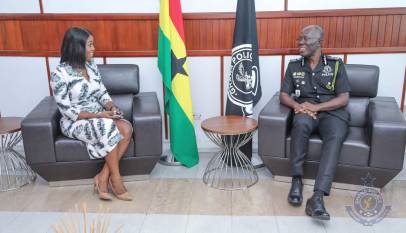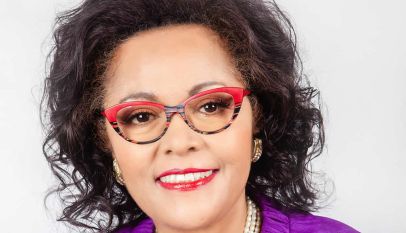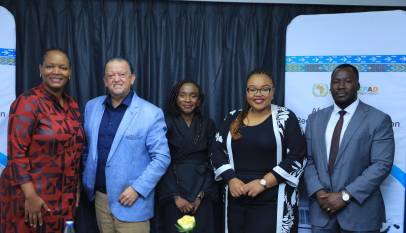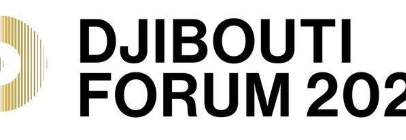Why Africa may fail to achieve SDGs by 2030 – Arrey Mbongaya
Arrey Ivo Mbongaya is the founder of the African Centre for Community and Development (ACCD) which works in diverse areas of sustainable development including conservation, environment, eco-tourism, agriculture in Cameroon
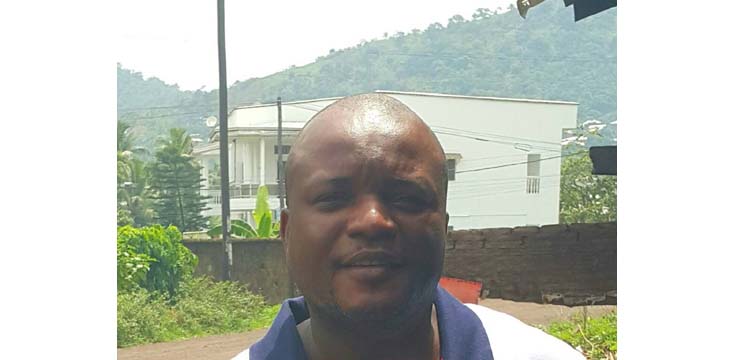
What inspired the founding of the African Centre for Community and Development and how far have you gone in achieving your vision?
The African Centre for Community and Development (ACCD) was inspired by a vision to alleviate poverty; empower people and communities as well as protect the environment through entrepreneurship. It is motivated by a holistic drive to ensure the inclusion of women, youths and vulnerable people in development using sustainable technical, educational and scientific models.
Our approach is inclusive and ensuring the voices of the voiceless are heard and that sustainable development is achieved in Cameroon, Africa and the globe. ACCD came about after series of talks and discussions with a wide-range of organisations and stakeholders on their work, successes, and challenges. It was in the view to intervene via a platform that recognizes all irrespective of colour, language, race, or creed that the organization was founded.
ACCD works in diverse areas of sustainable development including conservation, environment, eco-tourism, agriculture which are all tied to the SDGs, how is your work contributing to the successful realization of the Global Goals in Africa?
ACCD is doing a lot towards achieving the Sustainable Development Goals (SDGs); we are protecting biodiversity through our Green Cradle project under which we work with women and youths on food production and also build their capacities on sustainable agriculture and businesses as well as agroforestry.
We also empower communities through the documentation of sustainable livelihood models and using audiovisual interviews and documentaries which are being relayed across Africa and worldwide for learning, capacity building and replication. We have so far worked with hundreds of youths and women in diverse aspects of agriculture and organized varied workshops and events on issues like poverty, conservation, sustainability, business, food, women rights etcetera.
It was in recognition of our work that we were granted Special Consultative Status of the United Nations Economic and Social Council (ECOSOC) in 2012. The organization also runs nature and cultural tour packages and also offers training programs to small and medium size enterprises which is also vital in creating enabling environment for sustainable development in Africa.
Moreover, our Facebook page is a hub for the sharing of diverse information on the SDGs and development in general with subscribers from across Africa and the globe. ACCD also runs a group tagged: ‘Holistic Approach to Sustainable Development’ on LinkedIn where information on development trends globally can be accessed with close to 1500 global development professionals as subscribers.
In order to facilitate further sharing of information with stakeholders, we are establishing an ecosystem for the development of businesses through various Whatsapp groups; ACCD is thus involved fully in the successful implementation of the SDGs in Africa.
Furthermore, we have made our farmland and agroforestry initiative, Green Cradle, open to organisations willing to train and empower communities in diverse areas including livestock keeping, apiculture, agroforestry, cassava farming, as well as fruit and vegetable farming. Others are bamboo transformation and poultry farming etc.
We partner these organisations to fund programs using our facilities. This is an innovation in development management and social entrepreneurship which could be replicated across Africa towards the success of the SDGs.
Goals 14 and 15 of the SDGs are focused on safeguarding life under water and life on land respectively, how is your work contributing to achieving the goals in Africa?
ACCD has been in consultation with diverse stakeholders with the mission to study and map out their challenges and strategies in the areas of the protection of life under water and on land. We are in consultation with fishermen, civil society organizations, fisheries experts, agroforestry and forestry experts, farmers, women groups, youths, researchers, businesses etc under what we call the ‘People Places and Events’ platform where issues like the implications of plastic pollution on aquatic species are being explored.
Other issues being discussed and documented are marine conservation or forest management aimed at better policies towards addressing these issues. We have consulted with several hundreds of diverse stakeholders under this platform as well as published multimedia articles and newsletters on our findings and best solutions to the issues raised.
We are also participating in World Ozone Layer Day events where we make academic presentations on the subject of climate change and are also organizing events to improve on food security, access to proteins as well as to alleviate poverty.
What do you think are the major factors that will determine the success or otherwise of Agenda 2030 in Africa?
There are a couple of pertinent factors that will determine the success or failure of Agenda 2030 in Africa. For example, financing gaps are huge, if stakeholders committedly involved in the SDGs are not funded or are not included in the design and implementation of the SDGs i.e using bottom-up approach, the SDGs will fail in Africa.
Moreover, for the SDGs to succeed in Africa, bureaucracies associated with accessing funding must be avoided while creating veritable partnerships among diverse stakeholders to foster long lasting ecosystems for sustainable businesses, environmental protection and human wellbeing.
In this light, the African Centre for Community and Development is hoping that both funding partners and other relevant stakeholders will work organizations such as ours, who boast a professional track record – demonstrated through over 700 multimedia publications on YouTube and across other social media platforms – to successfully achieve Agenda 2030 in Africa.


